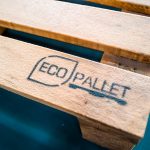
Heat-Treated Pallets and Kenya’s Climate: Preventing Warping & Moisture Damage
Understanding Heat-Treated Pallets in Kenya’s Unique Climate
Kenya’s climate varies significantly from the humid coastal regions to the arid and semi-arid lands of the north. These variations can have a profound impact on wooden pallets, making them susceptible to moisture damage, warping, and pest infestations. Heat-treated pallets provide a durable, sustainable, and pest-free solution to these challenges, ensuring long-term reliability for industries relying on wood-based logistics.
Why Heat-Treated Pallets are Essential for Kenya
1. Preventing Warping and Structural Weakness
Kenya experiences both high humidity levels and extreme heat, especially in areas like Mombasa and Turkana. These conditions contribute to wood expansion and contraction, leading to warping, splitting, and structural instability. Heat treatment stabilizes the wood by reducing its internal moisture content, making it less susceptible to climatic changes. This ensures that heat-treated pallets maintain their shape and strength, regardless of environmental fluctuations.
2. Protection Against Moisture-Related Damage
Excess moisture is one of the biggest threats to wooden pallets in Kenya’s humid regions. Untreated wooden pallets absorb moisture, leading to mold growth, rotting, and degradation. Heat-treated pallets undergo a kiln-drying process, reducing their moisture content to optimal levels. This prevents water absorption and increases resistance to fungal infestations, ensuring long-lasting usability even in the wettest conditions.
3. Compliance with International Shipping Standards
For businesses involved in exporting goods, using heat-treated pallets is not just an option—it’s a necessity. The International Standards for Phytosanitary Measures No. 15 (ISPM 15) mandates that wooden pallets used in global trade must undergo heat treatment to eliminate pests and pathogens. Companies in Kenya that rely on international shipping must use ISPM 15-certified heat-treated pallets to meet these regulatory requirements and avoid shipment rejections.
How Heat Treatment Enhances Pallet Durability
1. Eliminating Wood Pests and Termites
Kenya’s climate fosters wood-boring insects, termites, and fungi, which can compromise the structural integrity of wooden pallets. Heat treatment effectively eliminates these threats by exposing the wood to temperatures of at least 56°C (132.8°F) for 30 minutes, killing all insects and larvae embedded within the wood. This makes heat-treated pallets pest-free and highly durable.
2. Strengthening the Wood Fibers
The heat treatment process alters the cellular structure of the wood, making it more resistant to mechanical stress. The absence of excess moisture prevents swelling, shrinking, and cracking, thereby prolonging the lifespan of pallets used for heavy-duty transportation and storage.
3. Lightweight Yet Sturdy Construction
Since heat-treated pallets have reduced moisture content, they are significantly lighter than untreated ones. This reduction in weight leads to lower transportation costs, making them the preferred choice for businesses in logistics, manufacturing, and agriculture.
Best Practices for Using Heat-Treated Pallets in Kenya
1. Proper Storage and Handling
To maximize the benefits of heat-treated pallets, businesses should:
- Store pallets in dry, well-ventilated areas to prevent reabsorption of moisture.
- Stack pallets on raised platforms instead of directly on the ground to prevent exposure to damp conditions.
- Regularly inspect pallets for signs of damage or contamination, ensuring continued quality and safety.
2. Choosing the Right Wood Type
The effectiveness of heat-treated pallets also depends on the type of wood used. Hardwood varieties like eucalyptus and acacia offer superior durability compared to softwood alternatives. Kenyan businesses should prioritize sourcing high-quality hardwood pallets to ensure resilience in harsh conditions.
3. Reusability and Sustainability
Heat-treated pallets are environmentally friendly and can be reused multiple times without compromising quality. Businesses should implement a pallet recycling system to reduce waste and maximize cost-effectiveness.
Industries That Benefit from Heat-Treated Pallets in Kenya
1. Agriculture and Horticulture
Kenya is a major exporter of fresh produce, flowers, and tea, all of which require secure transportation. Heat-treated pallets ensure that perishable goods remain free from fungal contamination and pest infestations, maintaining quality during export.
2. Manufacturing and Warehousing
Industries that rely on bulk storage and transportation, such as construction materials, chemicals, and electronics, benefit from the enhanced durability of heat-treated pallets. These pallets provide better load-bearing capacity and minimize losses due to pallet failures.
3. Retail and FMCG Distribution
Fast-moving consumer goods (FMCG) require reliable packaging solutions to streamline supply chains. Heat-treated pallets ensure that products reach consumers without damage, while also meeting global compliance standards.
Where to Source High-Quality Heat-Treated Pallets in Kenya
Finding the right supplier for heat-treated pallets is crucial. Businesses should look for manufacturers that:
- Provide ISPM 15-certified pallets for export compliance.
- Use premium hardwood materials for durability.
- Offer customized pallet solutions for different load capacities and industry needs.
By investing in high-quality heat-treated pallets, businesses can enhance logistics efficiency, prevent costly damages, and ensure compliance with international trade regulations.
If you want to read more information about how to boost traffic on your Website just visit –> The Insider’s Views.





Add a comment